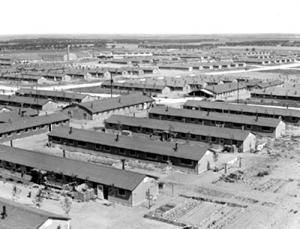National Park Service Grant Funds Films About WWII-Era Japanese-American Confinement Sites

National Park Service Grant Funds Films About WWII-Era Japanese-American Confinement Sites
By Debbie Gregory.
Full Spectrum Features, a Chicago-based non-profit film company that aims to educate the public about important social and cultural issues via the power of cinema, has received a grant to make two short films about the history of Japanese-American World War II incarceration that followed in the wake of the attack on Pearl Harbor in 1941.
The project is funded by the National Park Service, which recently awarded nine grants of more than $1.3 million to projects that help preserve and interpret World II Japanese-American Confinement sites.
In 1942, almost 120,000 Japanese Americans were forced from their homes in California, western Oregon and Washington, and southern Arizona in the single largest forced relocation in U.S. history.
Many would spend the next 3 years in one of ten “relocation centers” across the country.
The scripted films will focus on the resettlement and draft resistance of Japanese Americans.
“We think it’s important to have dramatic narrative scripted films about this history because Hollywood doesn’t make World War II films that feature Asian-Americans as the protagonists,” said Eugene Sun Park, Full Spectrum’s executive director.
The filmmakers are working with the Heart Mountain Foundation in Wyoming. Established in 1996, the foundation has worked to preserve and memorialize the site and events, educate the general public about the Japanese American incarceration and support research about the incarceration so that future generations can understand the lessons of the Japanese American incarceration experience. The site of the Heart Mountain War Relocation Center is considered to retain the highest integrity of the ten incarceration centers constructed during the war.
First Lady Eleanor Roosevelt stated towards war end “to undo a mistake is always harder than not to create one originally but we seldom have the foresight. …every citizen in this country has a right to our basic freedoms, to justice and to equality of opportunity.”
In 1988 and 1992 Congress passed laws to apologize to Japanese Americans for the injustices during the war and to pay compensation to survivors of the camps and their descendants.

















